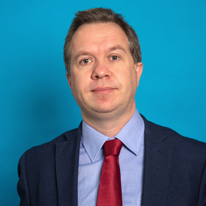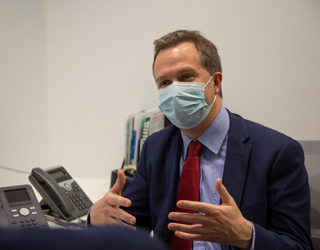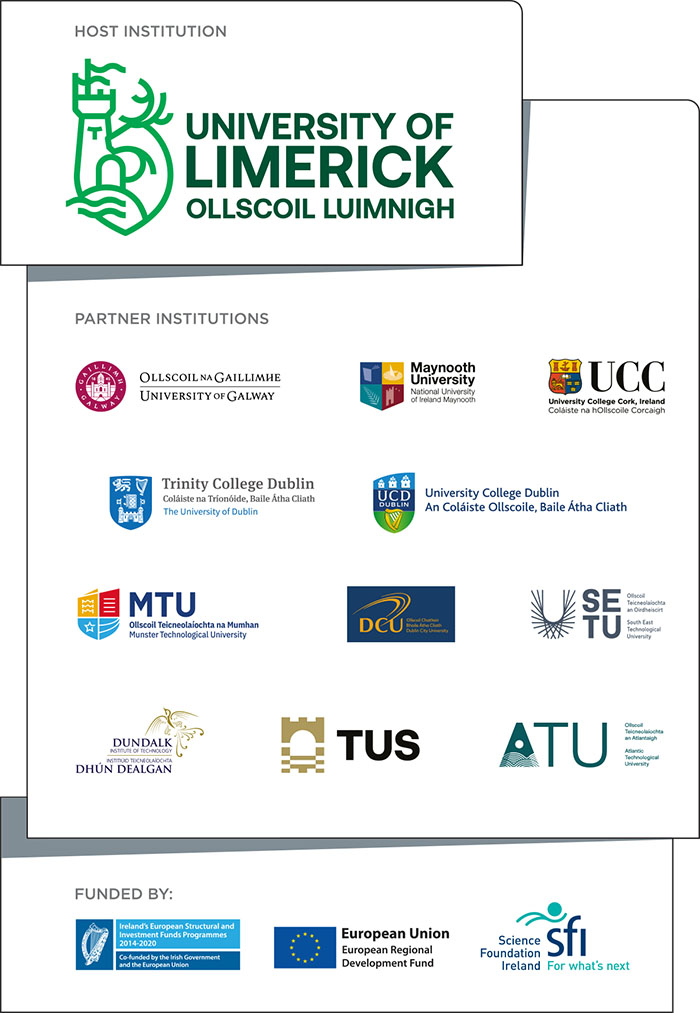Prof. Derek O'Keeffe - Consultant Physician and Professor of Medical Devices
You are here

Prof. Derek O'Keeffe
Consultant Physician and Professor of Medical Devices
Professor Derek O’Keeffe holds dual degrees in Engineering and Medicine, as well as a Masters and PhD in Biomedical Engineering from University of Limerick and NUI Galway. Professor O’Keeffe has worked with NASA, is an SFI-funded investigator, and currently works as a Consultant Endocrinologist at University Hospital Galway, as well as Professor of Medical Device Technology at NUI Galway.
I was invited to join Lero in 2020, by Professor Brian Fitzgerald. I had previously worked at UL, in the Faculty of Science and Engineering, so I was aware of Lero at the time and the outstanding reputation it had in software research. Since then, I went on to train as a physician, but some of the research work I am doing now is in the computer science and engineering space, and so when I was asked to join Lero, it just made sense because it is the benchmark for software research excellence.
My main area of research is digital health, and this represents the disciplines of both engineering and medicine. Digital technologies such as M-health represent the future of medicine, because it allows us to quantify people and their physiological signals at home, in a way that previously would only have been possible in a hospital setting. People are living longer now; that’s one of the successes of modern medicine. For that reason, other medical issues such as chronic diseases need on-going attention: things like diabetes, heart failure, and chronic kidney disease. These diseases need constant monitoring and adjustment of medication regimes, and the good thing about digital health technology is that it is perfectly made for that problem. This is where my research lies at the moment, and it is great to have Lero as a partner in this work as they are the paragon of software engineering.
I am a physicianeer, because I have trained and worked as both a physician and an engineer. I did a degree in electronic engineering, a masters in computer engineering, a PhD in biomedical engineering, a post-doc and then I went back and did undergraduate medicine and then did my clinical postgraduate training in Ireland and America. This cross discipline skill set is ideal for MedTech innovation, and so I wanted to create a structured university programme whereby you could gain dual training as an engineer and medic. Therefore, we have just launched the Physicianeer Programme at NUI Galway. We will invite five students in the first year medical programme to do this dual programme stream over 8 years. It won’t be for everybody, we know that, but often two or three people at the end of medicine every year come up to us and say ‘I really miss math and physics and applied math’, because you don’t use any of those in medicine. And in Ireland, because of the CAO structure, students can agonise over choosing medicine or engineering; some people just have that dual mindset. This will be an opportunity for them to do both in a structured programme which will be the first of its kind in Europe.

"Of all of the organisations that I am involved with, Lero has a real network of research excellence. Lero is a collective, or a hive of like-minded people who all have various specialties in software engineering."
AI’s great strength is to spot patterns in a deeper way than humans can, and because of that, it is a really important tool for the future of digital health research. I recently secured funding from Science Foundation Ireland to use devices like Alexa, Google Home or even Siri to identify a COVID cough. In medicine, we know that some coughs are very specific (e.g. whooping cough), and when I was on the COVID wards last April, the COVID cough was quite specific. Not all of them were reproducible, but I certainly noticed a pattern. Since I have worked before using Artificial Intelligence for pattern detection of ultrasound scans, I got thinking about a project where we could see if specific signals can be identified in the acoustic fingerprint of the COVID cough, to enable it to be used to triage patients to high, medium or low risk. At the time, one of the challenges was that for every 20 patients I was admitting for ‘query COVID’, which meant they had a high temperature, a cough or a sore throat, only perhaps two of the twenty had COVID, so that was a very inefficient way for screening patients. I thought there must be a better way for triaging people, and if there was software for cough analysis, it may be possible to identify coughs that have a high likelihood of being COVID. About 80 percent of people with COVID have a cough, so it’s a common symptom, and for those who don’t have the cough, those people could be asked to say a phrase such as a nursery rhyme and from there we can identify, by using signal processing and AI tools, the speech pattern that has the characteristics and the vocal modulation of a COVID patient or not. This is an example of a software project I am working on with my colleagues at MIT and Harvard, and it is great that Lero is involved with that project because Lero provides expertise in software engineering.
Of all of the organisations that I am involved with, Lero has a real network of research excellence. Lero is a collective, or a hive of like-minded people who all have various specialties in software engineering. So if I need expertise or input into some of the AI work that I’m doing for example, I can ask Lero to connect me to one of their AI experts. This exponentially increases your learning curve, because straight away you’re plugged into experts who are world leaders in their area, and can give you expert input into the technical questions you might have about a clinical problem you are solving.




